Can Bolton & His Russian Counterpart Defuse Israeli-Syrian Tensions?
Posted on
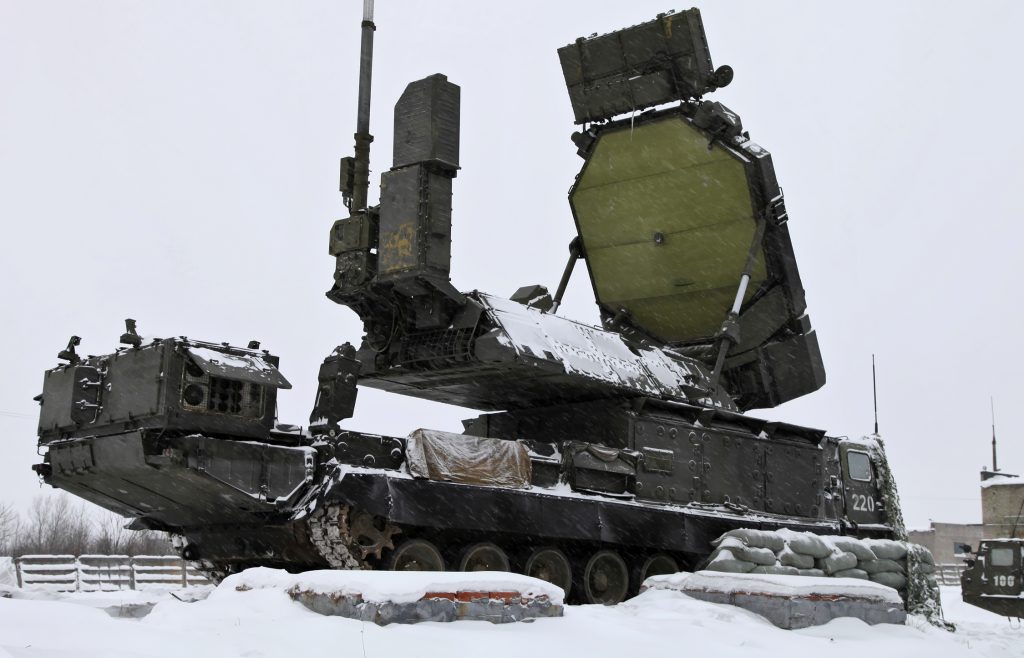
The mobile radar for the S-300 air defense system.
TEL AVIV: The Syrian civil war may seem to be winding down, but Israel is increasingly anxious after Russia’s surprise announcement it will give Syria full control of sophisticated S-300 air defense systems that could threaten Israeli aircraft. That’s not just a theoretical concern, because Israel has been hitting targets linked to Iran and its proxy Hezbollah, including Syrian military bases, with at least 10 Syrian and Hezbollah personnel reportedly killed this weekend alone.
To defuse the rising tensions, President Trump’s national security advisor, John Bolton, will soon head to Jerusalem to meet with his Russian and Israeli counterparts — a trilateral event that embattled Israeli Prime Minister Benjamin Netanyahu called “unprecedented.” Bolton is considered more hawkish than diplomatic, but his long-standing animus towards Iran might actually help out here, because Russia has its own misgivings about giving Iran too free a hand in Syria.
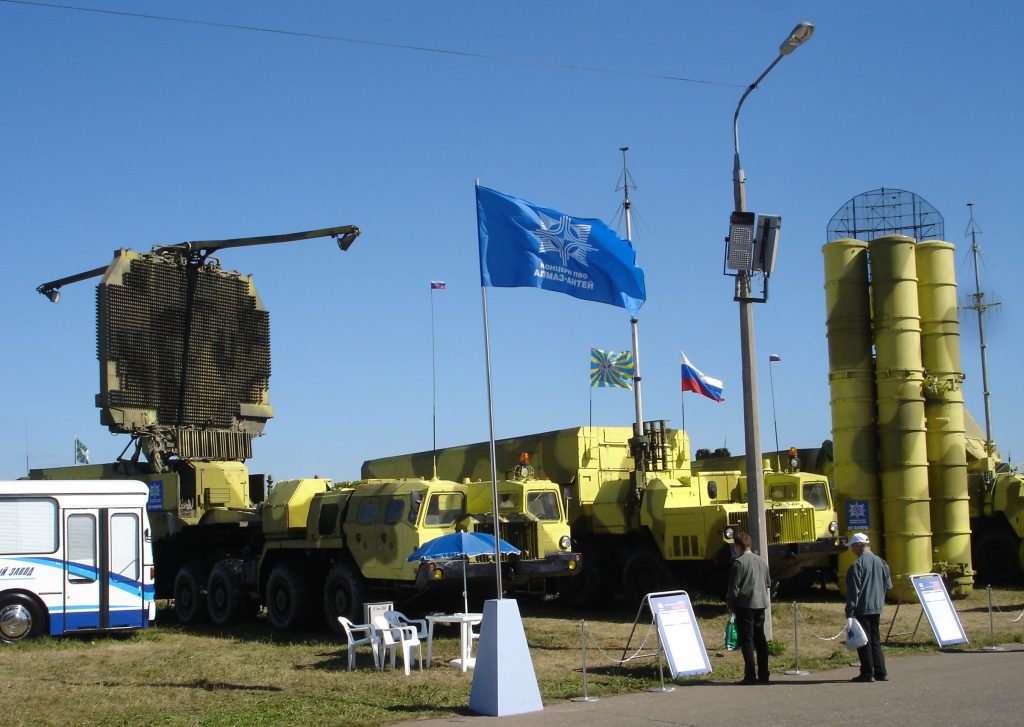
S-300 air defense system vehicles. Left to right: radar, mobile command post, and launcher.
The S-300 Threat
Until last fall, Syrian air defenses used a mix of aging Soviet-made missiles — SA-2s, SA-5s, SA-6s — and more modern Russian products like the SA-17 (Buk in Russian) and the SA-22 (Pantsir). In October, however, Russia gave Syria the much more sophisticated S-300, an anti-aircraft and missile defense system considered comparable to the American Patriot. (Russia already had S-300s defending its own base in Syria and has sold some systems to Iran). In fact, S-300 has the radar and missile range to lock on to targets in Israeli airspace, potentially engaging Israeli aircraft soon after they take off.
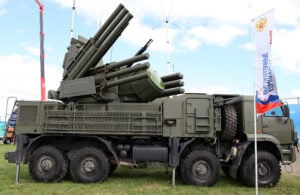
Truck-mounted version of the Russian Pantsir S1 anti-aircraft missile system (NATO reporting name SA-22 Greyhound)
But while Russia has been training Syrians to operate the S-300s, Russian personnel remained in control, and they never engaged Israeli aircraft or missiles. For their part, the Israelis for their part steered clear of striking sites where they might injure Russian troops.
That will change when the Russians give the Syrians full control — something Israel had asked the Kremlin not to do. There’ll be “no responsible adult [on] the trigger,” one Israeli defense source said, raising the risk not only to Israeli military aircraft but to passenger jets. That’s because the Syrians aren’t particularly discriminate in their targeting, with one Syrian battery (not an S-300) having mistakenly destroyed a Russian IL-20M intelligence plane last September, killing 15 Russians aboard.
Once the Syrians take over — and the Russian personnel are gone — the S-300 batteries will become legitimate targets, Israeli sources say.
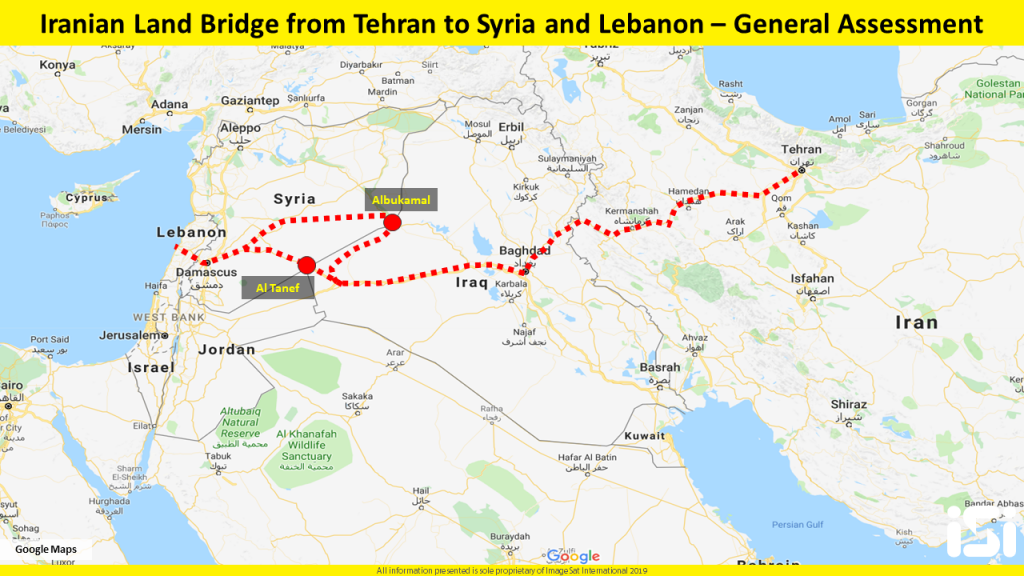
Courtesy ImageSat International
An Unprecedented Meeting
As tensions rose, Prime Minister Netanyahu first proposed a US-Russian-Israeli meeting when he visited Vladimir Putin at the Kremlin in February.
Last week, the White House officially announced that “United States National Security Advisor Ambassador John Bolton, Israeli National Security Advisor Meir Ben-Shabbat, and Russian Secretary of the Security Council Nikolay Patrushev will meet in Jerusalem, Israel, to discuss regional security issues” at an unspecified date “in June.”
“I proposed to Trump and Putin to form a US-Russia-Israel trilateral committee that would meet in Jerusalem to discuss the security situation in the Middle East and both of them agreed,” Netanyahu declared. “This is unprecedented. A meeting like has never taken place before in Israel. Never.”
We have defeated ISIS in Syria, my only reason for being there during the Trump Presidency.
— Donald J. Trump (@realDonaldTrump) December 19, 2018
President Trump has consistently expressed strong support for Israel, even moving the US Embassy from Tel Aviv to Jerusalem, but he has gone back and forth on the US role in Syria. In December, he surprised the Pentagon by announcing, in a tweet, a swift withdrawal of US forces, leading Defense Secretary Jim Mattis to resign in protest, only to backpedal. Both US and Israeli experts argue a withdrawal would leave the US-backed Syrian Democratic Forces — dominated by minority Kurds — at the mercy of the Assad regime, Iran, and Turkey, which although a nominal US ally has threatened military action against the Kurds.
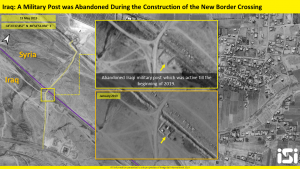
Courtesy ImageSat International
A recent report from the Tel Aviv-based Institute for National Security Studies suggests a US withdrawal would allow Iran to consolidate its control of both sides of the Syria-Iraq border, where it is already reportedly building border crossings and other infrastructure to support its militia proxies in both countries. But, the INSS scholars write, “this situation is also anathema to Russia, which would not only lose critical points in its struggle for influence in Syria, but would even be forced to accept Iranian control over the energy fields in the country’s east. Thus, in contrast with Russia’s public calls for the departure of the American forces, it is very possible that it prefers that steps in this direction be taken in full coordination between Moscow and Washington, in order to reduce damage and constrain Iran.”
It’s worth noting that Russia recently refused to sell its most advanced air & missile defense system, the S-400, to Iran — a big relief for both Israel and Saudi Arabia, as well as the US.
For its part, “over the past few weeks Israel has reduced the rate of its strikes against Iranian outposts in Syria,” perhaps to avoid provoking Russia, continues the INSS study, which predates this weekend’s strikes. “At present, there is a window of opportunity that allows Israel to try to [cooperate] with Russia and the United States [on] reducing Iranian influence.”
Seizing that opportunity is now up to Bolton.
Subscribe to our newsletter
Promotions, new products and sales. Directly to your inbox.
